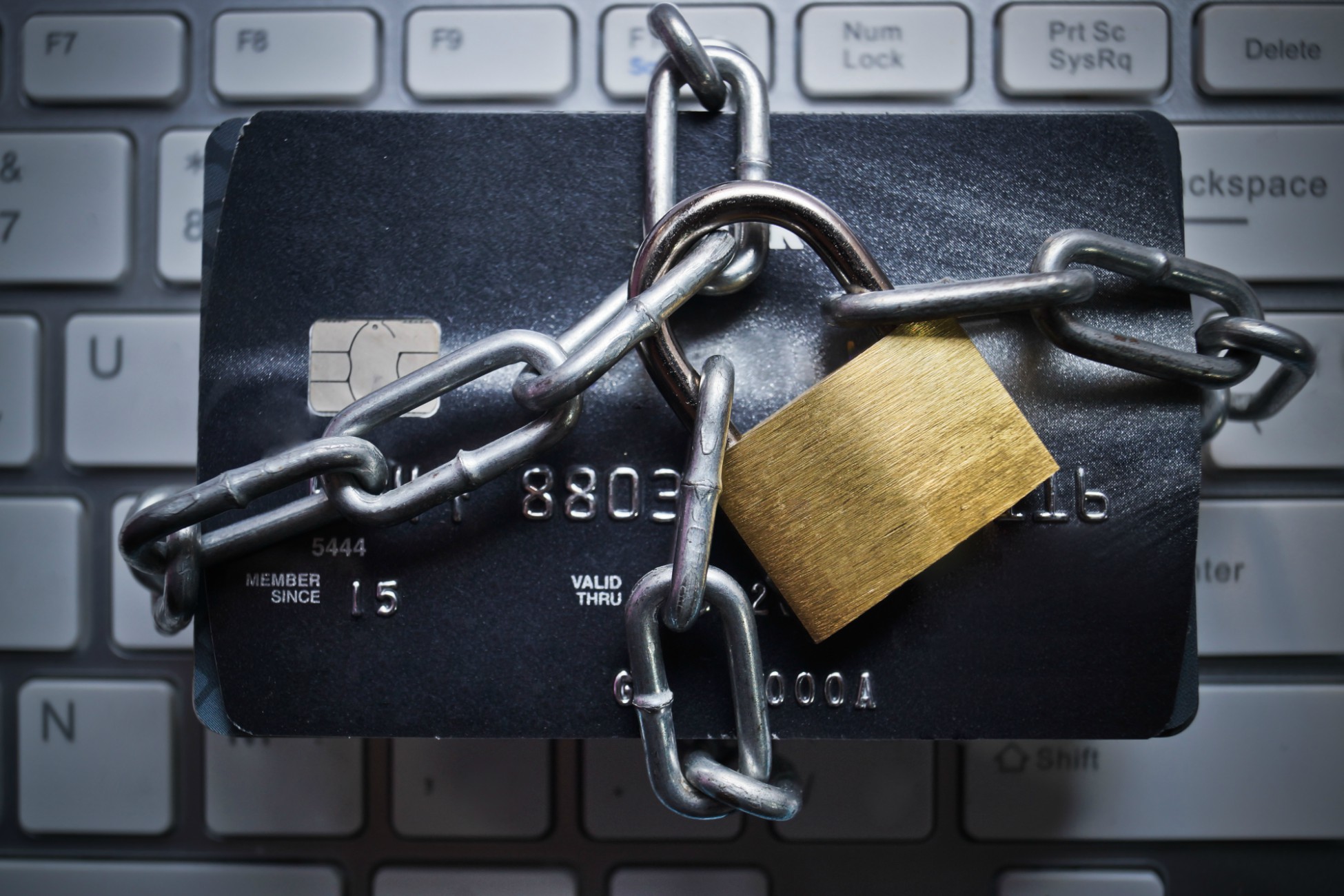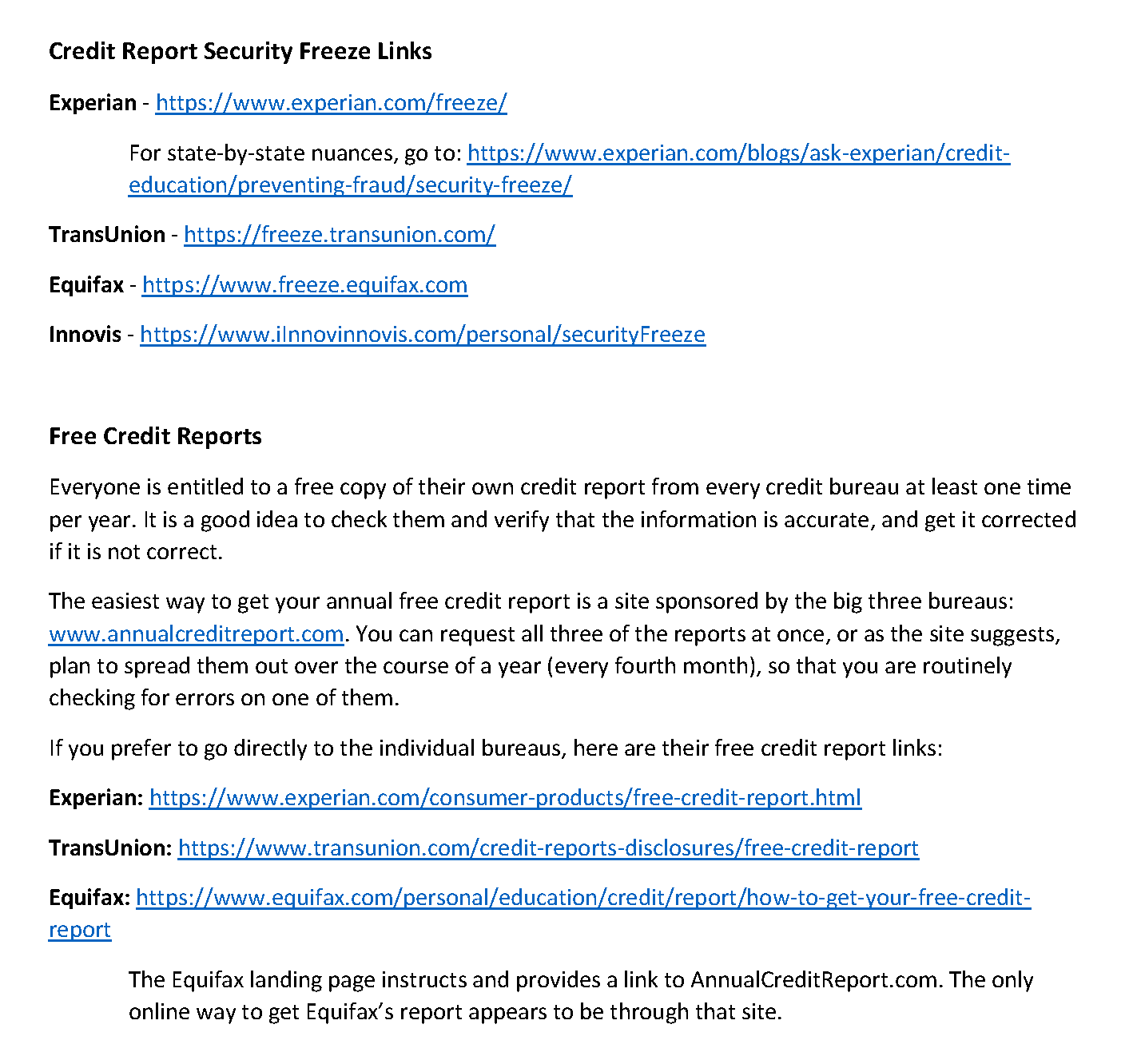![]()
 The bad guys already have your name, Social Security Number, birth date, address and possibly even your driver’s license number1. It is just a matter of time before the crook who stole your information sells it to a fraudster who attempts to use it for illicit gains at your expense.
The bad guys already have your name, Social Security Number, birth date, address and possibly even your driver’s license number1. It is just a matter of time before the crook who stole your information sells it to a fraudster who attempts to use it for illicit gains at your expense.
What’s the point of freezing your credit reports, now?
A credit freeze locks your credit report, and the PIN is the key to unlock it. When it is locked, creditors will not open new accounts in your name. Bad guys pretending to be you are more likely leave your information alone and move on to another fake identity, because where there are no locks the payoff is easier and quicker.
The downside of freezing your reports is that you must deal with those locks for any transaction requiring a credit approval. It also impedes background investigation services and potential or current employers. So, there will be times in the normal course of life when you will need to contact the credit bureau and use the PIN to unlock your credit report.
Additionally, it costs you a few bucks and a bit of time to freeze your reports. You must contact each of the agencies individually (see sidebar for contact information), and each has unique procedures.
TransUnion took me the longest to set up, but they also seemed to have the most thorough screening to assure that it was indeed me creating the freeze. I had to dig out several bits of additional information, like the origination year and current payment of my mortgage. They make you create a security freeze account, into which you later must log in and from there take the security actions you desire.
TransUnion and Experian both charged me $10 for the service, and they both allowed me to select the PIN. They also charge $5.00 to thaw the account2. I like that they charged me because the bad guys most likely will not pay to freeze an account. But if they did, it would probably be on a stolen credit card, maybe yours!
The Experian site provided links to state-by-state regulations and seemed the easiest to navigate. They also seem to be the most aggressive at turning this issue into a profit center. However, like the next two bureaus, they did not seem very concerned about confirming my identity and rights to create the freeze.
Equifax and Innovis were both free and easy to set up. I am troubled that they required virtually nothing to confirm I am the person who should be able to freeze or unfreeze the account. The Equifax site is the only one to include a very simple CAPTCHA to help avoid automated registrations by computer bots.
On Equifax, you get one shot at collecting the PIN; it is available in a PDF file that you must open on the screen. Make sure you have Adobe Reader installed and working before applying for an Equifax freeze, or you could have trouble thawing your account later.
The Innovis site proved the least comforting to me. Fortunately, this bureau is the least important. I bet many of you never heard of them! It asks only for minimal amounts of information, the same data the bad guys probably already possess. After just a one-page registration, it installs the freeze and promises to mail a letter containing the PIN to the address listed during the registration process. It took about two minutes to freeze this report.
What about the credit monitoring services?
Experian CreditLock is their version of a credit monitoring service, with the ability to lock or unlock your Experian credit report from your smartphone. It costs $25 per month and provides monitoring of TransUnion and Equifax reports as well. However, it does not help you lock those other bureaus, and I doubt that Equifax does a better job than the established monitoring services such as IdentityForce, LifeLock, or IDShield.
Credit monitoring services cost a lot more than freezing your reports, but like an alarm system on your house they do advise you when something happens in the background that you might not notice. Use one of these services to make sure no one is impersonating you or attempting to use your information in the “dark web.” However, once you lock your credit reports, the value of monitoring services diminishes, as they are also blocked from their primary information streams.
Summary
Like everything else, there is a tradeoff between convenience and security. Now if I do something that requires access to my credit reports, I need to unfreeze the credit bureau for that situation. If I lose the PINs, I will probably need to visit the local offices of the respective agencies to reset them.
On the other hand, since I believe that the bad guys probably already have my personal information, I have taken the proactive step of locking my credit reports so that it is difficult for them to use it for illicit gain.
1 By my calculations, more than half of all American adults were affected by the Equifax failure in 2017 alone. Throw in all the other data security penetrations of the past few years, and everyone should consider their personal identifying information (PII) exposed.
2 Fees vary according to State regulations.
Tracking #1-659543

